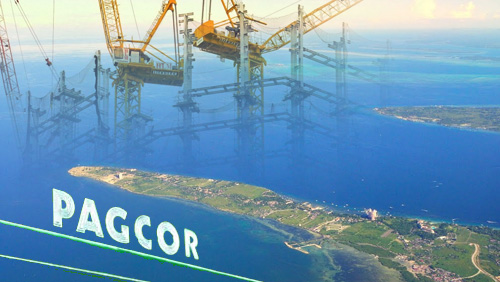State-run Philippine Amusement and Gaming Corporation (PAGCOR) has given the go-signal for the construction of a US$300-million integrated gaming resort on the holiday island of Cebu.
PAGCOR chief Andrea Domingo confirmed that the state regulator has awarded a provisional casino license to Filipino holding firm Udenna Corp.
 Udenna Development Corp. is led by Filipino businessman Dennis Uy, one of the top campaign contributors of President Rodrigo Duterte during the 2016 Presidential election campaign.
Udenna Development Corp. is led by Filipino businessman Dennis Uy, one of the top campaign contributors of President Rodrigo Duterte during the 2016 Presidential election campaign.
According to data from the Philippines’ Commission on Elections, Uy donated P30 million (US$600,783) to Duterte’s campaign kitty.
Domingo, however, denied that the awarding of the provisional license to Udenna Corp. was Duterte’s way to pay his debt of gratitude for the businessman’s support.
“[That’s] not true. [Uy] went through all the processes required. He met all the requirements and he was able to obtain a resolution of no objection from the Lapu-Lapu City government. We are strictly observing the President’s policy of level playing field,” Domingo told CalvinAyre.com.
Udenna will reportedly build the $300-million integrated resort and casino on the Punta Engaño peninsula in Mactan Island, Lapu-Lapu City.
The 12-hectare, beachfront casino resort will feature iconic modern buildings surrounded by lush greens and infinity pools. It will have a skydiving center on a pier, a retail complex, a convention center, luxury hotels and villas, specialty dining options, private residences and condominium-hotels.
“We see this integrated development taking a major role in bringing the Philippines on par with the region’s premier destinations for leisure, gaming and meetings as well as for commercial and residential investments,” Uy said in a statement.
Last March, Domingo floated the idea of replicating PAGCOR Entertainment City in Cebu as she believes Manila is becoming too congested for another multi-billion integrated casino resort.
“We listen to our investors. They asked us to give a five-year breathing space,” Domingo told reporters.
The Southeast Asian country, which is aiming to compete with Macau and Singapore casinos amid plunging revenues, has already allowed four resorts being built in the 120-hectare seaside Entertainment City complex in the capital with a minimum investment of $1 billion each.